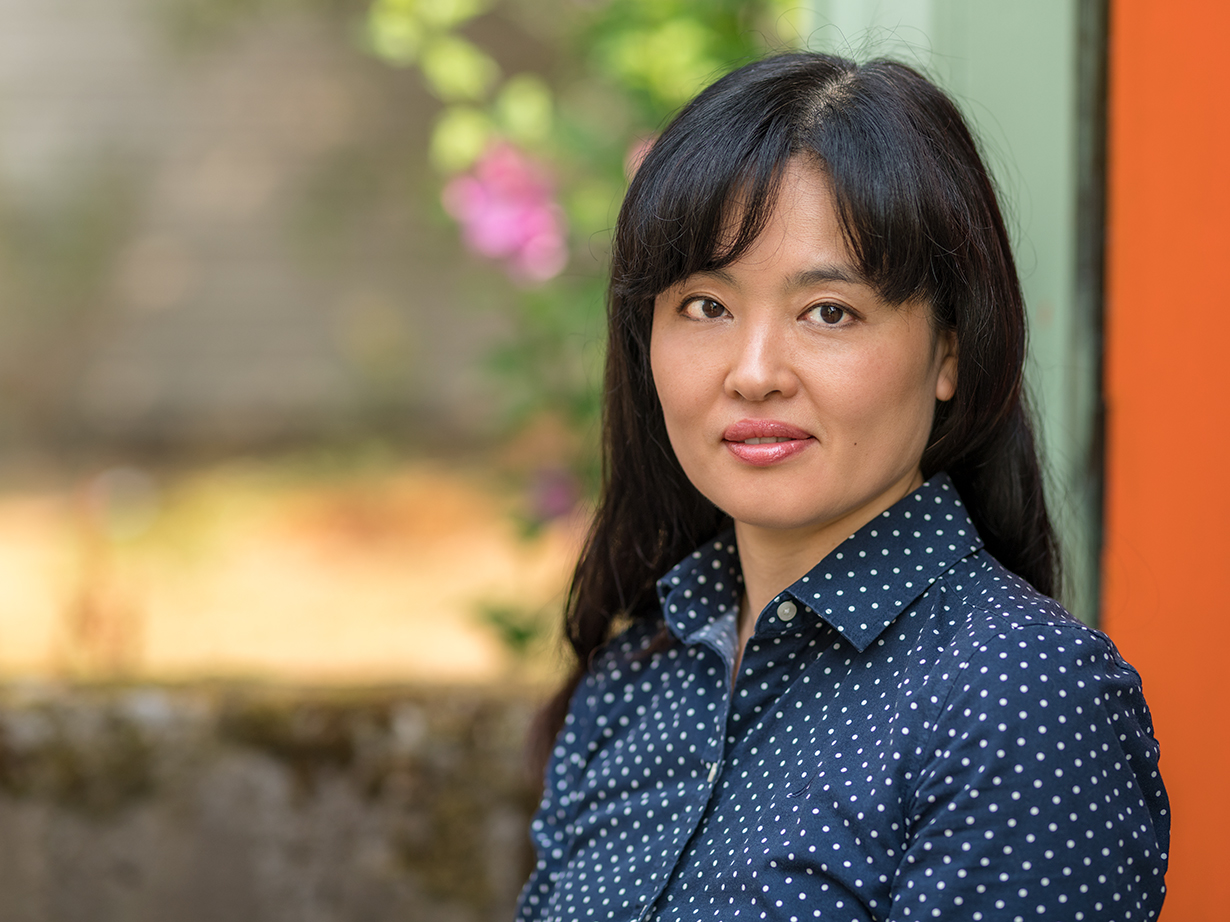Surrounded by shimmering glass beads, a rainbow of colored fragments, and vibrant glass masterpieces in her studio-gallery, Kurumi Conley confesses, “I love to make things.” In the case of this successful Portland glass artist, that could be an understatement.
Speaking in calm, measured tones, she describes seven moves as a child within Japan. Disruptive as this might appear, Kurumi remembers the beauty that helped inspire her artistry.
“My first memory is our eighth floor apartment in Tokyo, looking out at sunset or maybe sunrise,” she recalls, “The color of the sky is glowing purple and crimson and orange.”
From class art projects to family recipes, and even homemade ice sculptures, Kurumi’s childhood during Japan’s economic boom of the 1980s was a steady search for opportunities to engage in the simple act of making. Her eyes filled with the abundantly visual world she inhabited. She reveled in cherry blossoms that collected like snow in her hair on the walk home from school, and marveled at the geometry of the innumerable construction sites developing around her.
“I was always drawn to translucent colorful material,” she says, gesturing to the countless jewel-bright glass creations that fill her studio. Studying at Joshibi University of Art and Design allowed her to fully embrace her love of glass art.
Kurumi immigrated to the United States in the mid-1990’s and made a home in Portland with her husband, Michael Conley, a career saxophonist. She created her own glass studio in their basement, and later expanded the studio into the renovated carport in their backyard as their family began to grow. The hot kiln and fragile glass pieces were not ideal components for child-proofing a house as her most precious creations, two daughters, started crawling.
In so many ways, Kurumi’s artistic inclinations have made her a perfect fit for Portland, and vice versa. “Made local. Handmade. I love the concept,” she says, “And it is very trendy here.”
Still, there have been moments, even in Portland, where her image as an outsider did not work to her favor. “It somehow went against me, because of how I looked,” she says, “Some people assume that it’s not made here.”
Navigating her experience as an immigrant in the United States took on a new meaning as her children began developing their own identities.
“As a parent you try to apply your experience to give [your kids] advice,” Kurumi says. But, she acknowledges, “What worked for me isn’t going to work for them. My identity didn’t get bothered because I grew up in my safe place. I came here as an adult. I think growing up in this country and trying to find your own identity seems very tricky. It must be hard for the young people to grow up here. To find your identity.”
Even after decades of living, raising children and making art in Portland, Kurumi still sometimes faces backlash when it comes to displaying public opinions. As she observes, “I have been here for twenty years. But maybe people don’t acknowledge that. If I was born here people would think I have a right to discuss things. I tend to still withdraw. I’d rather use my energy to create and bring a positive thing to the community.”
Today Kurumi makes art, and also offers group classes and activities in her studio.
At 47, she has come to terms with the challenges and joys of being an artist and of being an immigrant. Kurumi derives a lot of happiness from sharing her art form with group classes and neighbor-centered glass projects. “Now people come over and make their own pieces. There’s a community. When your hands are moving there is conversation. It’s kind of therapeutic.”

